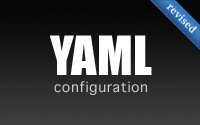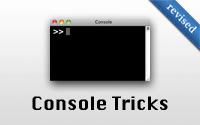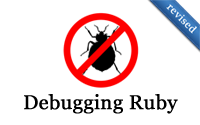Types
- Free Episodes
- Pro Episodes
- Revised Episodes
Categories
- Active Record
- Active Resource
- Active Support
- Administration
- Ajax
- APIs
- Authentication
- Authorization
- Background Jobs
- Caching
- Code Walkthrough
- Controllers
- Debugging
- Deployment
- eCommerce
- Forms
- Mailing
- Models
- Performance
- Plugins
- Production
- Rack
- Rails 2.0
- Rails 2.1
- Rails 2.2
- Rails 2.3
- Rails 3.0
- Rails 3.1
- Rails 3.2
- Rails 4.0
- Refactoring
- Routing
- Search
- Security
- Testing
- Tools
- Views
Custom App Generators (revised)
Learn how to customize the Rails app generator to fit your preference. This episode shows how to do this using .railsrc file, app templates, app builders, RailsWizard, and AppScrolls.
(10 minutes)
YAML Configuration (revised)
Keeping passwords and secret tokens in source control is a security risk. Here I show how to move these settings out into a YAML configuration file which can be loaded in as a hash or environment variables.
(8 minutes)
Console Tricks (revised)
Here you will learn how to get the most out of the Rails console. I will also demonstrate several utility gems and how to use them without adding them to the Gemfile.
(9 minutes)
The Logger (revised)
The log file will show what is going on behind the scenes of a Rails request. Learn how to log messages, add tags, override formatting, and more.
(6 minutes)
Debugging Ruby (revised)
This episode will show you how to debug a rails app using the "debugger" gem: set a breakpoint, inspect variables and change the executed code at runtime.
(7 minutes)
Capistrano Tasks (revised)
Learn the basics of writing Capistrano tasks, how to set variables, and run commands on a remote server. Then peak into the internals of Capistrano's deploy tasks to see how they work.
(10 minutes)
Bundler (revised)
Bundler makes it easy to manage Ruby Gem dependencies. Learn how to use it in a Rails application, see what's new in Bundler 1.1, convenient ways to run bundle exec, and how to fix gem compilation issues.
(9 minutes)
Cron in Ruby (revised)
Cron is a common solution for recurring jobs, but it has a confusing syntax. In this episode I show you how to use Whenever to create cron jobs using Ruby. Some alternative scheduling solutions are also mentioned.
(6 minutes)
Factories not Fixtures (revised)
Fixtures are external dependencies which can make tests brittle and difficult to read. In this episode I show how to use Factory Girl to generate the needed records directly in the tests.
(9 minutes)









